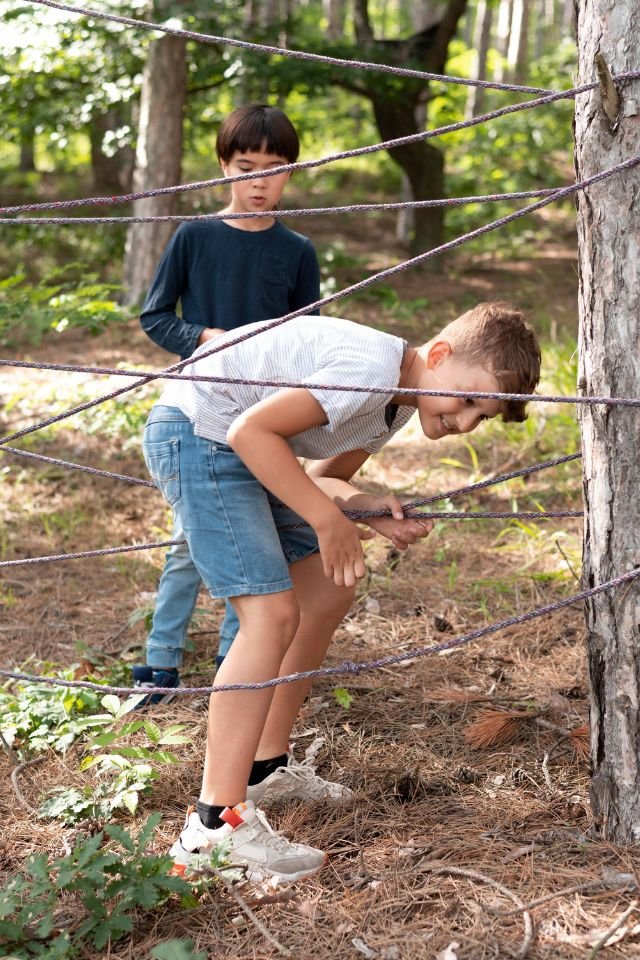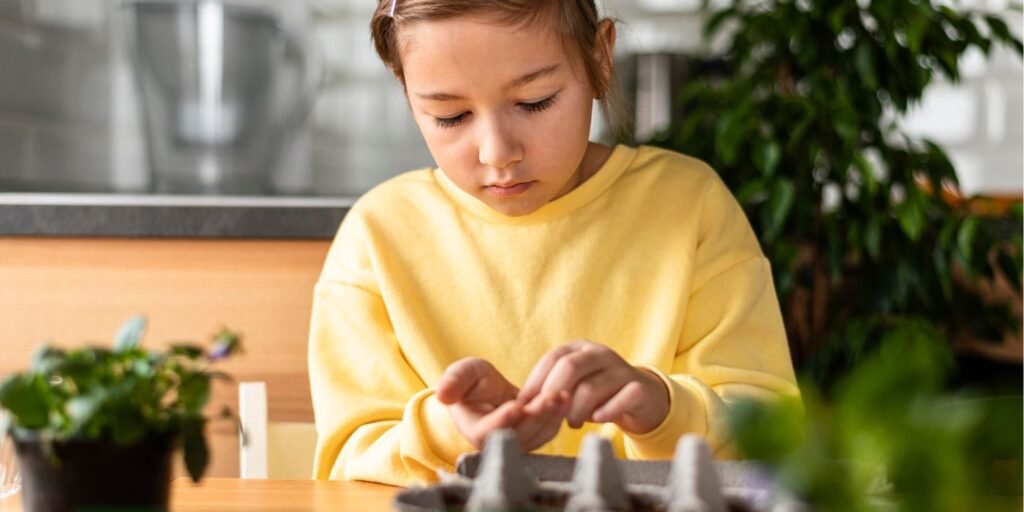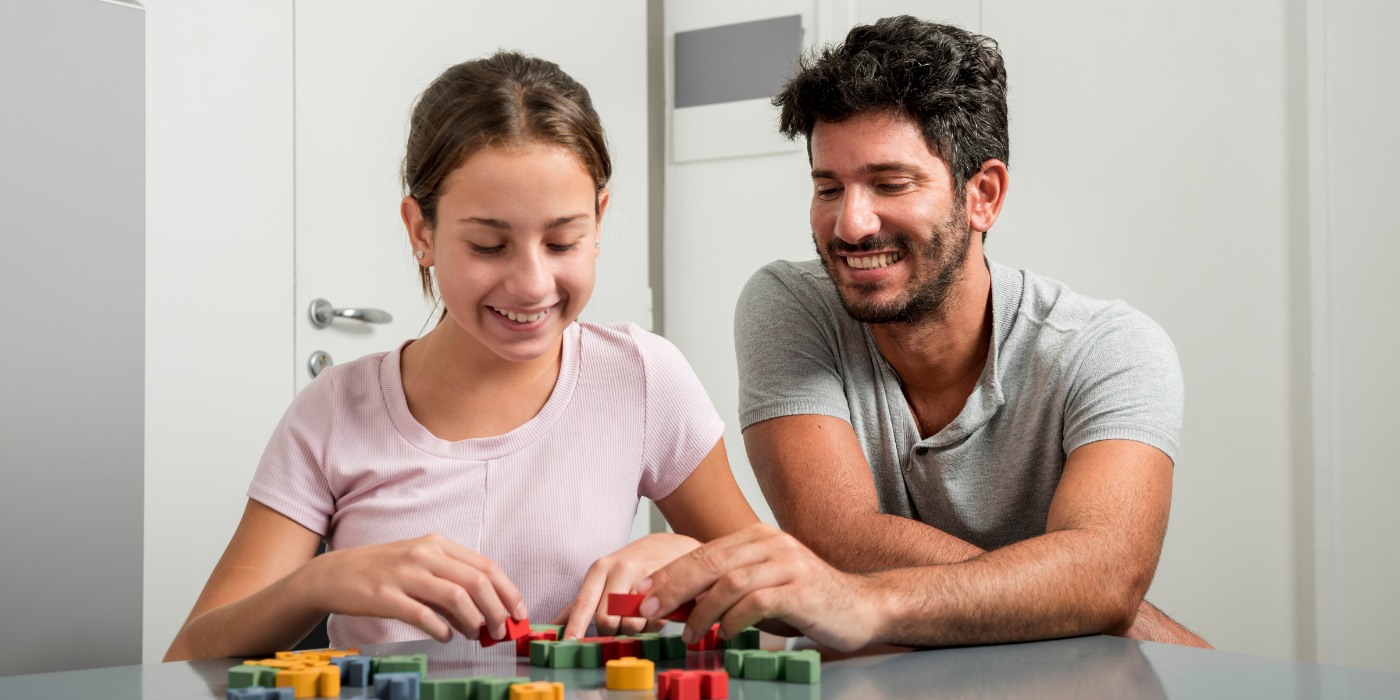In a world buzzing with screens, deadlines, and never-ending to-do lists, it’s easy to feel like weekday moments with your child slip away in the chaos. But what if you could turn even the busiest weekday into an opportunity for connection, calm, and learning—using the natural world just outside your door?
Enter the Tiny Explorer mindset: where leaves become lesson plans, pebbles spark curiosity, and a simple walk transforms into a focus-building adventure.
Whether you live in a city, suburb, or somewhere in between, these nature-based focus games are designed to boost your child’s attention span, support emotional regulation, and create meaningful moments—without making your hectic routine feel any heavier..
Why Nature Works: The Science Behind Outdoor Play and Focus
Nature has a remarkable impact on children’s brains. Research shows that even short periods of outdoor time can improve focus, reduce anxiety, and boost memory in children.
Nature-based learning supports:
- Executive functioning (like planning, remembering, and following directions)
- Emotional self-regulation (calming overstimulated minds)
- Sensory integration (especially helpful for neurodivergent kids)
When kids move their bodies, use their senses, and engage with the natural world, their brains are actually better equipped to sit down and focus afterward—even on homework!
How to Use These Games on Busy Weekdays
You don’t need hours or a forest to make this work. The key is consistency and intentionality.
Here’s how:
- Use transitions: Play a quick nature game before or after school, before dinner, or during homework breaks.
- Keep it short and sweet: Most of these games take 5–15 minutes.
- Repeat favorites: Familiar activities become comfort rituals that build focus over time.
- Stay flexible: If it rains? No problem—some games work from the porch or by a sunny window.



8 Nature-Based Focus Games for Tiny Explorers
These activities are designed to help children of all ages slow down, engage their senses, and sharpen their focus—while still having fun.
1. Sound Safari
What you need: Just your ears!
How to play:
- Find a safe outdoor spot.
- Sit or stand quietly for one full minute.
- Can you list all the sounds you notice around you right now?”
- Turn it into a game by encouraging them to beat their personal best the next time they listen.
Why it works: This game enhances auditory processing and mindfulness, helping kids tune out distractions and zero in on specific tasks later.
2. Texture Hunt
What you’ll need: A small bag or an empty egg carton to collect items.
How to play:
- “Ask your child to find things that have different textures—some might feel soft, others rough, or even bumpy.
- Have them describe each texture as they collect it.
Variation: Turn it into a “blind feel” guessing game using a bandana or scarf.
Why it works: Activates sensory awareness and verbal skills, both critical for focused learning.
3. Rainbow Collector
What you need: A printed color chart or a hand-drawn rainbow.
How to play:
- Invite your child to find one item in nature for each color on the chart.
- Optional: Take pictures instead of picking items.
Why it works: Builds visual scanning skills, pattern recognition, and task persistence.
4. Animal Movement Challenge
What you need: Imagination and space to move.
How to play:
- Call out nature-themed prompts like “Hop like a frog!” or “Tiptoe like a fox!”
- Include a “freeze and focus” moment between each movement.
Why it works: Balancing movement with short breaks supports emotional control and builds stronger attention skills.
5. Mini Map Makers
What you need: Paper, pencil, and optional clipboard.
How to play:
- After a short walk, invite your child to draw a simple map of what they saw.
- Include trees, paths, rocks, or landmarks.
Variation: Turn it into a treasure map for added fun.
Why it works: Encourages memory recall, spatial reasoning, and attention to detail.
6. One-Spot Sit
What you need: A cozy outdoor spot.
How to play:
- Sit together in the same spot daily for 5 minutes.
- Ask: “What’s the same? What’s different today?”
Why it works: Reinforces observation skills and a calming sense of routine.
7. Stick Stack Focus Game
What you need: A small pile of straight sticks.
How to play:
- Take turns placing a stick on top of a central pile without knocking it over.
- Challenge each other to slow down and focus.
Why it works: This game builds fine motor control, patience, and concentration.
8. Nature Noticer Challenge
What you’ll need: A small journal or notebook for your child to jot down observations.
How to play:
- Ask your child to write or draw one new thing they notice outside each day.
- Try doing it at the same time each weekday.
Why it works: Reinforces daily reflection, builds awareness, and boosts focus over time.
Making the Most of Micro-Moments in Nature
Even five minutes outside can be enough to reset your child’s attention span—especially if that time is intentional and engaging.
Bonus Tips for Parents:
- Pair nature time with a snack or water break to increase buy-in.
- Join in! Your child will be more likely to engage if they see you exploring, too.
- Follow their lead. Let their curiosity guide the play, even if it veers off course.
These images will beautifully complement the themes of exploration, focus, and natural discovery.
Final Thoughts: Little Moments, Big Impact
You don’t need a weekend hike or a nature retreat to help your child focus and thrive. You just need a few mindful moments under the sky, a dash of creativity, and a willingness to explore.
The natural world isn’t just a setting—it actively supports your child’s ability to concentrate, build confidence, and feel emotionally grounded.
Even on your busiest weekday, these tiny adventures can help your child become more grounded, observant, and connected—to nature, to themselves, and to you.







